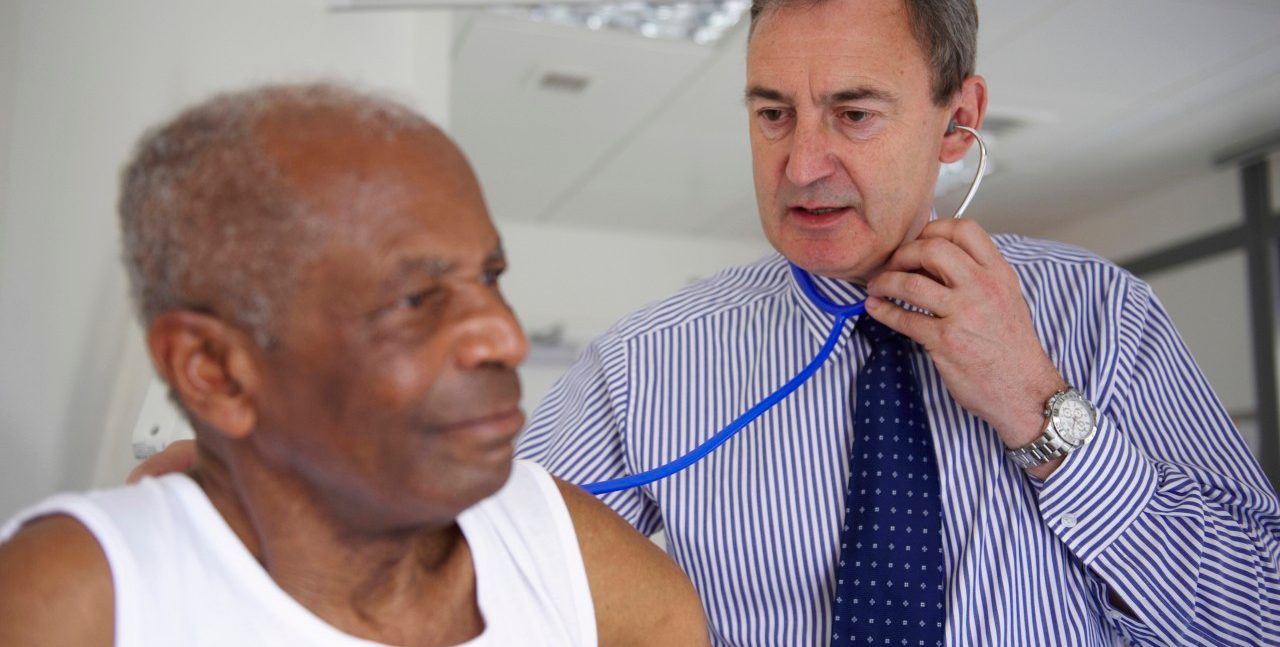Helping Seniors at the Doctor’s Office

Prepare your elder love one or friend for a doctor visit, ask questions of the doctor, help them pick up prescriptions, and be their overall health advocate.
Some seniors need help in a lot of ways. One is during a doctor visit.
As some seniors grow older, a role reversal may occur, leaving you to care for someone like they cared for you when you were young. Older adults with health problems can become confused. Health information can overwhelm them, even when healthcare providers try their best to communicate simply.
You can help your parents or other loved ones prepare to see a doctor. Take your loved one to the visit, ask questions, get their prescriptions at a pharmacy, and be their health advocate.
YOU MIGHT ALSO LIKE: Social Isolation and High Blood Pressure in Older Women
You can help interpret health information and be a reassuring presence in a potentially overwhelming atmosphere.
During the visit, help the senior avoid conversational small talk and bring up the primary reason for the appointment.
“I've had patients talk to me about smaller issues and, by the time I'm ready to close the visit, they say, ‘What I really wanted to talk about is…,’” says Loyola University Health System pediatrician Hannah Chow, MD. “This makes it difficult to discuss what’s really concerning you. It might even be good to make a list of the questions you want to ask to make sure we cover your concerns in the visit, but keep it short.”
Chow once had a parent pull out a list of 27 questions during a 15-minute visit that included an examination. Help the senior stick to the three most important concerns you or they have, which gives the doctor and nurse time to answer questions and explain health information.
A physician's nurse is invaluable, so be sure to make good use of their knowledge and ability to communicate. Nurses obtain vital signs and record information about the reason for the visit. They are usually very familiar with each patient’s medical chart and can discuss your concerns to help make the visit productive.
Another way to help your aging parents is to establish a pattern of communication with the doctor and nurse. Despite their age, seniors will still consider you their child and may not listen to what you have to say. But they usually have enough respect to listen to a doctor or nurse. So, you can fax or email a list of questions you want to address before the visit occurs.
Another tip that makes visits easier is to give the doctor a copy of your parent's signed healthcare proxy or durable medical power of attorney. That lets the doctor know which family is responsible for making healthcare decisions if the senior can’t.
It’s also important to pick only one family liaison and stick with that person for communication with the doctor’s office. Most physicians don’t have much time to answer calls or emails from several family members.
You should always try to attend doctor appointments, but you can hire services to help if you’re unable to, such as a:
- Geriatric care manager
- Concierge service
- Home health aide
- Paid caregiver or ambulatory escort
"We suggest family members set up an initial interview so they can find someone who they are comfortable with," says Renata Gelman, RN, BSN, assistant director of clinical services for Partners in Care, an affiliate of Visiting Nurse Service of New York.
Other tips include:
- Not assuming that your senior’s doctors are sharing information and making sure they do
- Using one medical group
- Communicating with home health aides or any other service you hire
Updated:
August 28, 2023
Reviewed By:
Janet O’Dell, RN